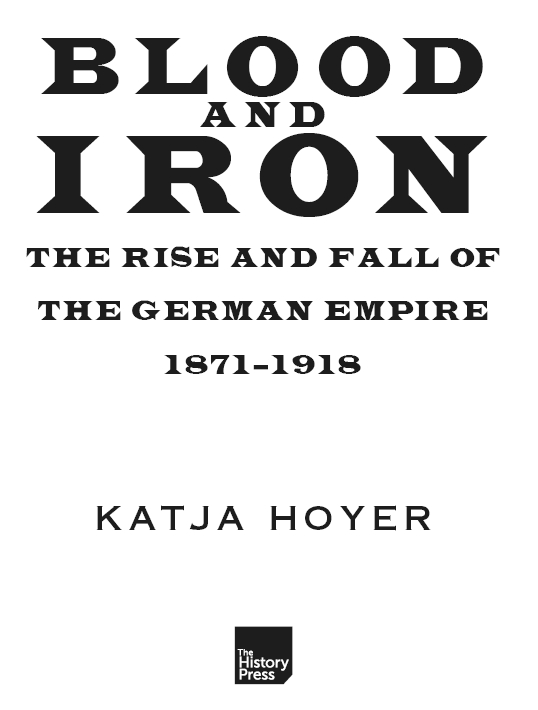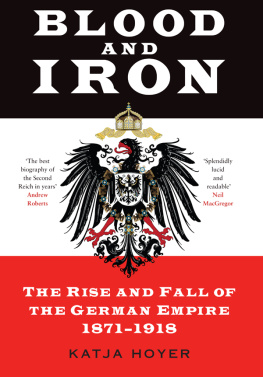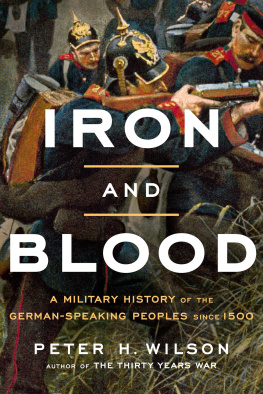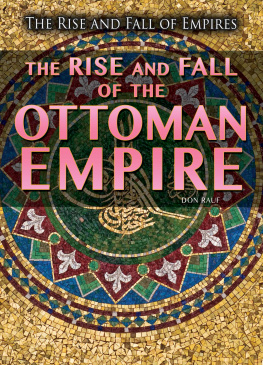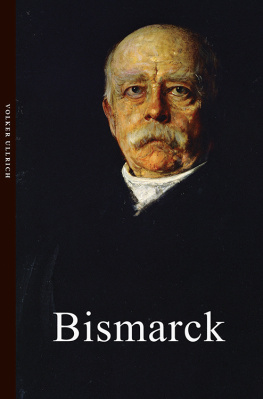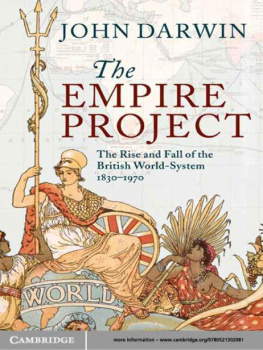First published 2021
The History Press
97 St Georges Place, Cheltenham,
Gloucestershire, GL50 3QB
www.thehistorypress.co.uk
Katja Hoyer, 2021
The right of Katja Hoyer to be identified as the Author of this work has been asserted in accordance with the Copyright, Designs and Patents Act 1988.
All rights reserved. No part of this book may be reprinted or reproduced or utilised in any form or by any electronic, mechanical or other means, now known or hereafter invented, including photocopying and recording, or in any information storage or retrieval system, without the permission in writing from the Publishers.
British Library Cataloguing in Publication Data.
A catalogue record for this book is available from the British Library.
ISBN 978 0 7509 9691 4
Typesetting and origination by The History Press
Printed and bound in Great Britain by TJ Books Limited, Padstow, Cornwall.
eBook converted by Geethik Technologies
CONTENTS
Index
INTRODUCTION
On the bright, cold winter morning of 17 January 1871, Wilhelm I, King of Prussia, had a moment of crisis. Eventually, the old man lost what self-control he still had and began to sob, Tomorrow will be the unhappiest day of my life! We are going to witness the burial of the Prussian monarchy and this, Count Bismarck, is all your fault! The 73-year-old king was an unlikely candidate to assume the mantle of the mystical Kaiser who would arise one day to unite all Germans. Yet this was precisely what was now expected of him. The next day, on 18 January 1871, around noon, several hundred Prussian officers, members of the nobility and representatives of all the German regiments that had fought in the Franco-Prussian War gathered in the Hall of Mirrors of the Palace of Versailles. The sound of marching bands drifted into the magnificent room through the tall windows and mingled with the excited chatter of the waiting crowds. Then the large double-doors at the end of the dazzling hall opened, and Wilhelm I, Crown Prince Friedrich and the representatives of the German states entered in a ceremonial procession. A strained, expectant silence fell. There was a sense that those present were witnessing a historical moment, one of mythical proportions.
Wilhelm had managed to pull himself together and stiffly accepted the title that was offered to him formally by the German princes during the ceremony. And yet there was already a sense that the journey ahead would not be easy for the newly formed nation. At its helm would be a monarch who had refused the title German Kaiser and only reluctantly accepted the more neutral Kaiser Wilhelm. He would forever remain a Prussian king first, second and third. Otto von Bismarck, the architect of the fledgling state and its first chancellor, was also not a nationalist. To him Germany was an extension of Prussian power and influence. He had even chosen the date for the proclamation of the German Empire to coincide with Prussias national day. Together, king and chancellor were now trying to reign over a political construct whose more reluctant southern member states had only joined to protect fellow Germans from the perceived threat of French invasion that Bismarck had so cleverly engineered. This made for a somewhat fragile and potentially short-lived bond that the Iron Chancellor had to fight hard to maintain. He had not even dared to hold the ceremony for the proclamation of the German Reich in any of the German states. Instead, it took place at the Royal Palace of Versailles, the heart of the defeated nation France. A fitting symbol for the centrality of the notions of struggle and war to the new Germany.
On the one hand, Bismarck could work with centuries worth of myth-making to build a nation out of the patchwork of individual states. In its first years and decades, the German Empire busied itself to build monuments to ancient legends that were supposed to give meaning and collective memory to the newly formed Germany. Wilhelm I was even declared to be the reincarnation of the medieval king Friedrich Barbarossa. In a German version of the Arthurian legend, Barbarossa was said to be asleep under the Kyffhuser mountains in Thuringia, destined to return one day and restore Germany to its greatness. A vast monument to this effect was erected in the 1890s. This sense of a shared mythology was added to by many great German thinkers among them the Brothers Grimm who had long argued that German culture, language and historical tradition form a stronger bond than local particularism. Furthermore, the irresistible economic currents of the industrial revolution that had swept through Western Europe for over a century demanded greater coordination of resources, manpower and policy if the German states did not want to fall further behind their French and British neighbours. The rising middle classes saw the immense potential of the natural resources, favourable geography and work traditions of the German-speaking lands. If only they could be unlocked through unification.
On the other hand, cultural, economic and political ties were not enough. As Bismarck himself pointed out in his famous 1862 speech, it would take war to unify the German people. That proved as accurate before 1871 as it did after. When Bismarck decided to forge a brand-new nation state in the fires of war against Denmark, Austria and France, he created a Germany whose only binding experience was conflict against external enemies. Holding the conglomerate of what had been thirty-nine individual states together under one federal government proved difficult, and cracks began to appear before the ink on the new constitution had dried. He understood that the nation had not been moulded into one smooth whole over centuries but was really closer to a mosaic, hastily glued together with the blood of its enemies. Bismarck therefore sought to perpetuate the struggle in order to preserve his new Germany.
This was a risky strategy. The Iron Chancellor was an astute politician, perhaps one of the greatest statesmen of all time, and he understood how fragile the so-called Concert of Europe was in 1871. To introduce a new major power into the very heart of it was akin to placing a child with a trumpet into the midst of a world-class symphony orchestra. He knew the newcomer had to be quiet for some time until she had learned her craft and earned the respect of the established players. Bismarck could therefore not seek external conflict again anytime soon. Instead, he focused on internal enemies against whom he could unite the majority of the German population. The new state now encompassed many ethnic minorities such as Polish, Danish and French communities, against which Bismarck could create the contrast of German citizenship. When compared to a Frenchman, Germans would see themselves as Germans rather than Bavarians or Prussians. In addition, religion seemed another useful battleground. Two-thirds of the population within the German Empire were Protestant and one third Catholic. By secularising German society, Bismarck sought to replace religion with national sentiment, thereby creating new identity references and reducing differences between Germans. Lastly, the internationalism of the socialist movement seemed a dangerous counter-current to national identity. Bismarck declared socialists enemies of the state and so could use this too to keep the struggle of all Germans against common enemies alive.

